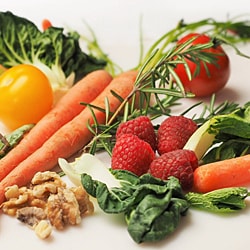WHAT NOT TO FEED YOUR CAT
 Cats are carnivorous animals (i.e. their intestines and teeth were constructed specifically for consumption of meat). Occasionally cats might eat grass, but only for medical purposes (to cleat the intestines of indigested food).
Cats are carnivorous animals (i.e. their intestines and teeth were constructed specifically for consumption of meat). Occasionally cats might eat grass, but only for medical purposes (to cleat the intestines of indigested food).
Cats are prone to food poisoning, because their liver is not able to quickly process toxic substances. And if other animals can eat any food without harm to their health, cats are unfortunately deprived of such opportunity.
So, what not to feed your cat? What kind of food is harmful for cat’s health and should be avoided?
Alcohol.
In small doses it doesn’t cause any ill effects on cat’s health. But what is a small dose for a cat? Well, a cat can get «drunk» (intoxicated) from simply licking a cap of a bottle which contained an intoxicating liquid (be it valerian tincture, catnip oil or plain alcohol). A large amount of alcohol can cause severe poisoning, which in turn causes difficulty breathing, coma and even death.
Avocado.
Pip (Nucleus), peel and leaves contain a toxin (Persin), which is dangerous for cats. Some sources deny the latter statement, but it is better to be safe than sorry.
Beans (Peas).
Considered to be useless products, since they are not absorbed or digested, and only lead to fermentation and bloating of the intestine.
Grapes (Raisins).
These products are poisonous for dogs, and while their toxicity for the cats have not been confirmed (or denied), it is commonly recommended to avoid feeding a cat with raisins or grapes.
Cocoa and Chocolate.
These products include theobromine, which is considered very toxic for cats. Even a small amount of chocolate can lead to neurological abnormalities, and in large quantities — can causes diarrhea, vomiting and a heart attack.
Milk.
It is advised not give milk to adult cats. The fact is that not all cats are capable of proper lactose digestion. Frequent consumption of milk leads to intestinal discomfort and upset stomach. The higher the percentage of fat in the milk, the less lactose it contains. But if your cat loves milk, replace cow milk with the milk of a sheep or a goat, condensed milk or cream.
Nuts.
Due to the high phosphorus content, it is not recommended to give nuts to cats (especially macadamia or walnuts).
Beer (Hops).
Cats are strictly forbidden to drink beer. Hops, which is contained in beer, enhances the heartbeat and causes an uncontrollable increase in the body temperature of the animal.
Tomatoes and Potatoes.
Tomatoes — are poisonous for cats in raw form, and its not only fruits themselves that are poisonous (both mature and green), but also stems and leaves of the plant.
Potatoes, just like tomatoes, belong to the Solanaceae family. Potato peelings, plant leaves, raw or green potatoes are poisonous for cats.
Citrus, Pineapple and Kiwi — cause cats to vomit excessively.
Garlic and Onions.
Onions are poisonous for cats in any form: dried, raw, stewed, fried, etc. The disulfide contained in the onions destroys the red blood cells, thereby causing hemolytic anemia. Poisoning with onions can lead to a fatal outcome! The first signs of poisoning are manifested a few days after cat eats an onion — diarrhea, vomiting, lethargic state, loss of appetite.
Garlic also contains a similar substance, but in a smaller amount.
Sorrel and Rhubarb.
Forbidden for cats in a raw form. Oxalic acid, which is part of these products, can lead to the animals kidney failure.
Eggs.
Daily consumption of raw eggs causes vitamin B deficiency, which causes ill effects on cat’s skin and fur.